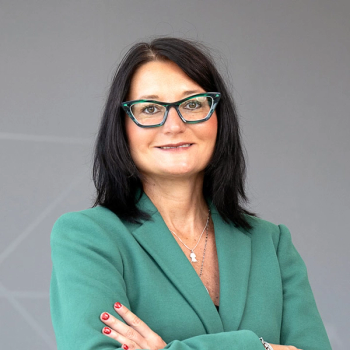
Oncology NEWS International
- Oncology NEWS International Vol 11 No 2
- Volume 11
- Issue 2
Long Survival Confirmed in CML Patients Who Respond to Interferon
ORLANDO-Patients with chronic myelogenous leukemia (CML) who have a complete cytogenetic response (CCgR) to interferon-alfa have a long survival, and low-risk patients have a projected 10-year survival of more than 80%, Francesca
ORLANDOPatients with chronic myelogenous leukemia (CML) who have a complete cytogenetic response (CCgR) to interferon-alfa have a long survival, and low-risk patients have a projected 10-year survival of more than 80%, Francesca Bonifazi, MD, reported at the 43rd Annual Meeting of the American Society of Hematology (ASH abstract 1466).
Dr. Bonafazi, of Bologna University, Italy, presented data compiled in nine European countries by the European Study Group on Interferon-alfa in CML.
This study included 317 patients with Philadelphia chromosome-positive CML who had a CCgR after treatment with interferon-alfa alone. The median time to complete hematologic response was 2 to 7 months in the patients as a whole, and the median time to first CCgR was 19 months (range, 3 to 84 months).
At last contact, 212 patients (68%) were still in first continuous CCgR. The remaining 105 patients had lost CCgR, but 53% were still alive and in chronic phase. Ten-year survival from first CCgR was 72% for the group as a whole and was much higher for low-risk patients (89% for Sokal’s low risk and 81% for the IFN score low risk), Dr. Bonifazi said.
Interferon-alfa was discontinued in 23 patients for response loss, in 36 for chronic toxicity, and in 8 because they were in stable CCgR for more than 5 years. Dr. Bonifazi reported that 15 of the 36 cases discontinued for toxicity and 7 of the 8 discontinued after response of more than 5 years were still in unmaintained CCgR for 2 to 5 years after discontinuation of treatment.
Articles in this issue
about 24 years ago
R115777 Has Significant Activity in CML and Myelofibrosisabout 24 years ago
National Cancer Prevention Campaign Discussedabout 24 years ago
CHOP Plus Rituxan Proves Cost-Effective in B-Cell Lymphomaabout 24 years ago
Lung Cancer Screening Protocol Moves Forwardabout 24 years ago
Cancer Prevention Research Hampered by Lack of Biomarkersabout 24 years ago
Rituximab Improves Efficacy of Chemotherapy for Follicular LymphomasNewsletter
Stay up to date on recent advances in the multidisciplinary approach to cancer.












































